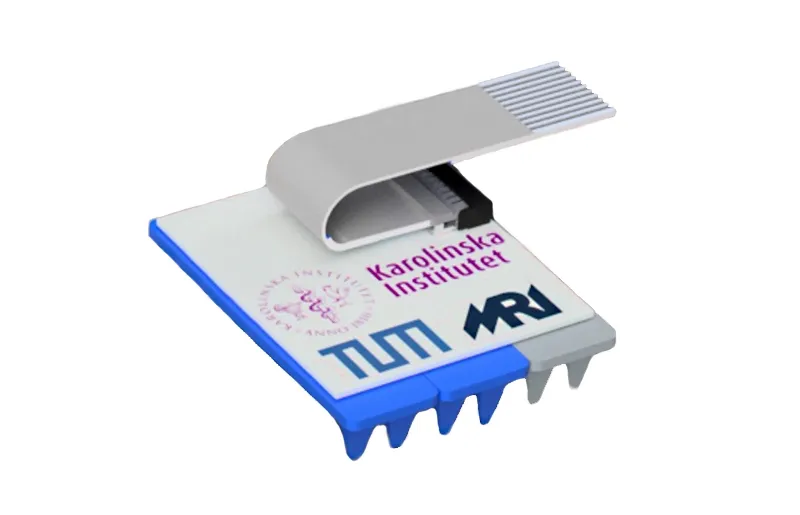Microneedle patch can detect skin cancer early

Researchers at Karolinska Institutet have developed a new method for detecting malignant melanoma. A new type of patch equipped with microneedles can identify the biomarker tyrosinase directly in the skin, according to a study published in Advanced Materials.
The patch is equipped with microneedles that can detect tyrosinase, an enzyme that is an important biomarker for malignant melanoma. By measuring the enzyme's levels directly in the skin, researchers can quickly identify changes linked to the disease.

“We used human tissue from healthy individuals. By applying tyrosinase directly to the skin, we were able to mimic skin cancer,” explains the study's last author Onur Parlak, Associate Professor at the Department of Medicine, Solna, Karolinska Institutet, and continues:
“This is an important advance to improve skin health monitoring and can also be used to screen other biomarkers through a simple change in design.”
Could be an alternative diagnostic method
Malignant melanoma is the most serious form of skin cancer and the fastest growing cancer. The study shows that the new patch could be an alternative to current diagnostic methods, leading to earlier detection and treatment of malignant melanoma. The researchers hope their work will help reduce the number of procedures and improve patients' quality of life.
“Our method is less invasive and has the potential to provide faster and more reliable results compared to traditional biopsies,” says Onur Parlak:
“Our goal is to continue developing and improving this technique to offer more accurate and painless diagnostics”, concludes Onur Parlak.
See the study for how it was funded and possible conflicts of interest.
Publication
"Transdermal Sensing of Enzyme Biomarker Enabled by Chemo-Responsive Probe-Modified Epidermal Microneedle Patch in Human Skin Tissue", Poursharifi N, Hassanpouramiri M, Zink A, Ucuncu M, Parlak O, Advanced Material, online May 11, 2024, doi: 10.1002/adma.202403758
